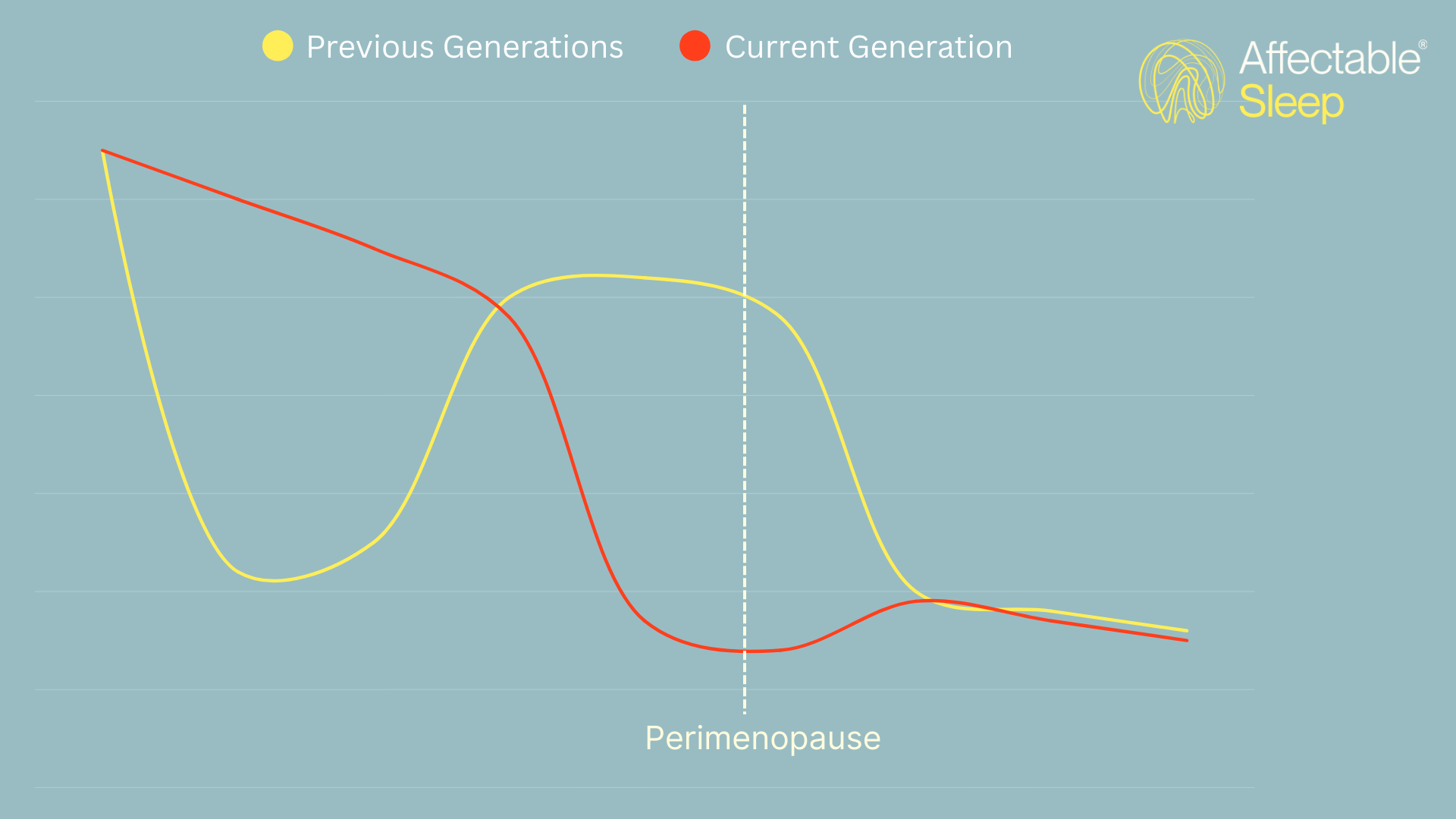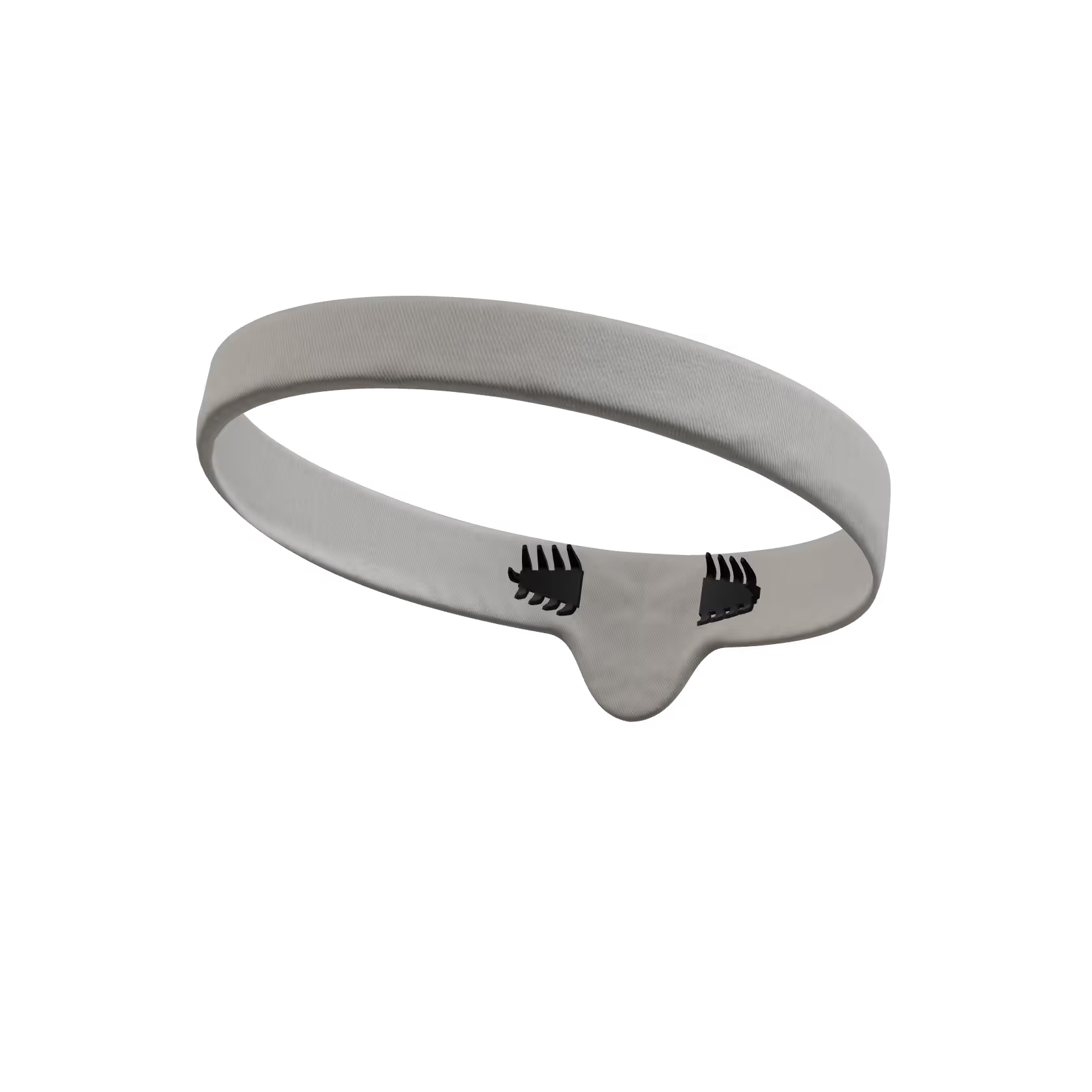When childrearing meets menopause: the new reality of women’s sleep

When I began researching sleep in early 2020, it was quickly apparent that women were much more likely than men to share their sleep challenges, and though everyone seemed interested in wanting better sleep, women were much more likely to demand to be beta testers!
Mind you, this was before we had committed to neurostimulation and what would become the Ultrasleep™.
Over a short period of time, we realized that it wasn’t just women, but specifically, the most eager were mothers of young children. This makes sense once you hear it, but digging deeper we recognized it wasn’t just the first few months post-partum, but even at 5 years of age, mother’s were struggling with sleep.
When we look at maternal sleep, we know sleep quality goes down. Often this is blamed on sleep time, but research shows time does not decrease significantly. The difference is often that sleep is interrupted, and potentially more damaging.
I’ve been told by mothers that they experience the wired but tired feeling. They’re feeling like they’re always “on-edge” and even when they sleep, they feel like they’re only half asleep, as if they’re always partially conscious ready to satisfy their children’s needs.
Some researchers suggest this may be related to cortisol levels, particularly post-nursing, and an evolutionary throwback to the days when we needed to be aware of the dangers lurking in the wilderness that may be a threat to our children.
What mother’s are experiencing isn’t the lack of sleep time, it is the decrease in the restorative function of sleep.
In earlier generations, mothers gave birth in their 20s and potentially into their 30s, but the recent trend in many countries is for parenting to begin much later in life, allowing women to focus on their careers in their 20s and 30s and just barely sneak in a child or two in their late 30s and early 40s.
When childrearing was done earlier in life, women would experience the decline of sleep, and it would last for a few years, but then they would recover and get their “regular” sleep back.
Now that women are having children later in life, delayed maternity means the decrease in sleep function related to parenthood has begun to overlap with perimenopause. Mothers now say they never “recovered” from poor sleep after having children.
Is it any wonder why women are demanding a solution to help their sleep needs?
Though HRT improves many of the symptoms of perimenopause and post-menopause, sleep remains the #1 complaint.
We were yet to understand how or if Affectable’s Ultrasleep stimulation could benefit women’s pre and post menopausal sleep challenges. We were incredibly fortunate that a commenter on Reddit had access to a more rudimentary version of our technology during her perimenopause years, and she said the difference was “night and day” and it was the only thing that helped, and she hasn’t been able to find anything remotely close since.
This is why we created Affectable Sleep. It’s for these groups of people for whom adding more sleep isn’t an option, or isn’t even answering the right question.
There is no reason to continue to suffer if we can increase the restorative function of sleep.
If you, or someone you know, has experienced slow-wave enhancement during childrearing or perimenopause, we’d love to hear your story. Tag us on instagram @affectablesleep or post on our reddit page.
Those experiences are what guide us as we build the future of restorative sleep.
Further Reading/Sources
Sleep During the Perimenopause: A SWAN Story
